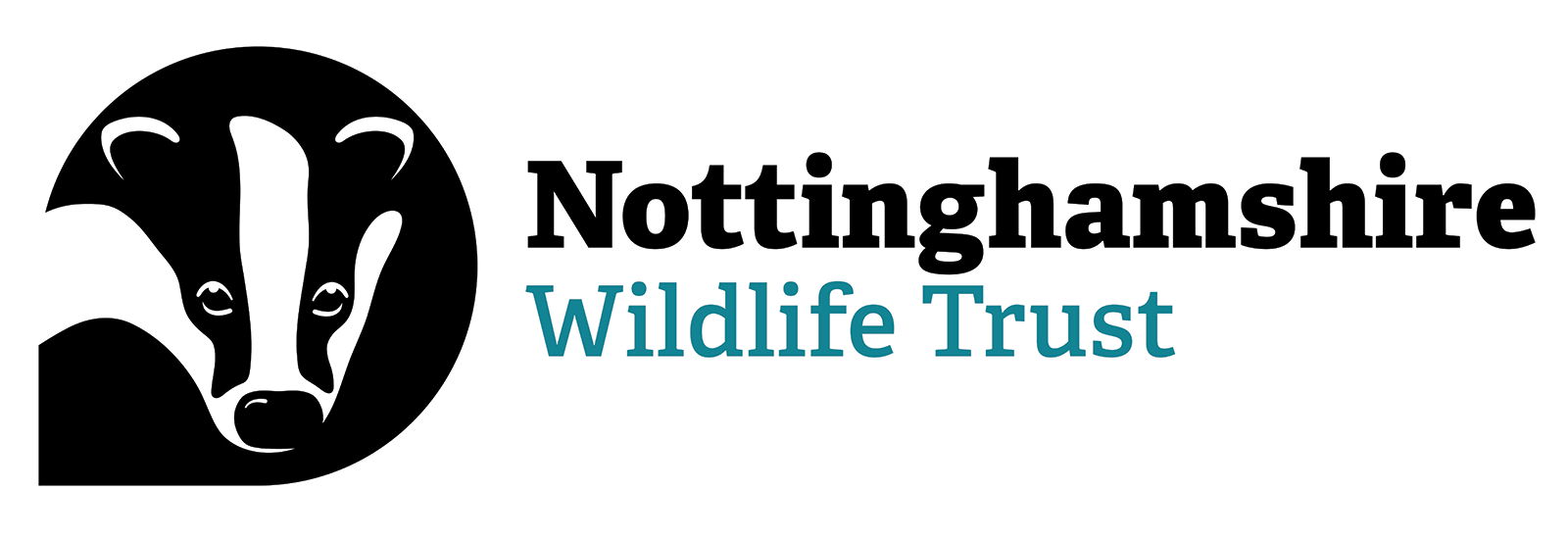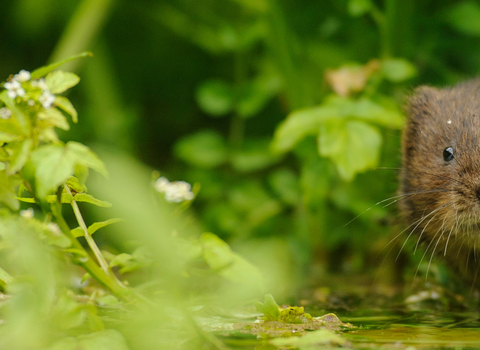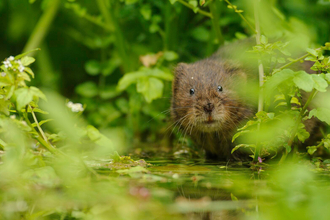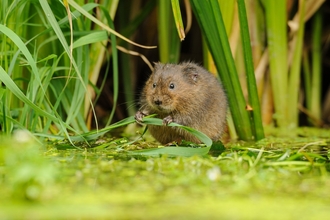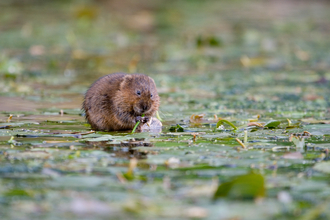The water voles have been released!
We're delighted to showcase the day of the water vole release into soft release pens within the beaver enclosure in this short video.
Water vole release September 2024 (https://youtu.be/9s9LAMp_jkU)
Credit Sophie Bell
It is widely acknowledged that the water vole is the UK’s fastest declining mammal. Surveys for the species early in 2023 at Nottinghamshire sites where they were recorded historically found them to be either absent or reduced in number or range.
This local evidence, plus continued pressure on water vole populations across the UK and their recent extinction in some counties, demonstrates that urgent action is required to prevent this charismatic and important mammal being lost from Nottinghamshire.
Now, thanks to a grant of almost half a million pounds from Natural England’s Species Recovery Programme Capital Grant Scheme, Nottinghamshire Wildlife Trust, which helped coordinate the first county-wide survey for the species back in 1997/98, is to embark on an ambitious project to restore water vole populations across three key areas of the county.
The project, based at our Idle Valley Nature Reserve and will be overseen by our Head of Nature Recovery North, Janice Bradley MBE. Work will be coordinated by our new Water Vole Recovery Project Manager Gary Cragg assisted by two Water Vole Recovery Officers – (North & South). It will run until March 2025 will see £491,740 invested in a range of measures to restore and create vital wetland habitat to support the species, efforts to boost water vole numbers and a targeted programme of mink control across 900 hectares of wetland habitat and more than 50km of rivers to give water vole populations the chance to recover.
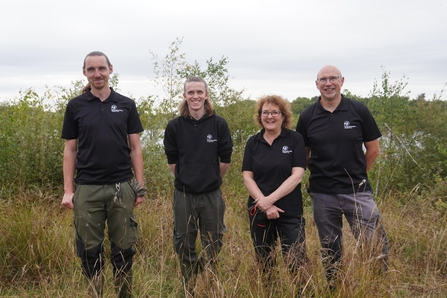
The Water Vole Project Team left to right: Water Vole Recovery Officers Jack Scarborough & Ryan Melvin; Head of Nature Recovery (North) Janice Bradley and Gary Cragg, Water Vole Recovery Project Manager.
Outcomes
Read our Project Outcomes page for info on the works being delivered in the Nottinghamshire area.
FAQs
Why is this project needed?
The evidence is stark and clear, without urgent action, the future for water voles in our county is bleak and we risk losing this much-loved species forever from Nottinghamshire. The urgency of the situation is highlighted by the water vole's inclusion as a priority species in the UK Biodiversity Action Plan.
What area does the project cover?
The project will be focussed on at least three catchments across the county (Erewash, Sherwood and Idle) – giving water voles the opportunity to recover in the north, south and centre of the county. The project also aims to restore water vole populations at two of our flagship sites - Idle Valley and Attenborough Nature Reserves - amongst other wetland sites.
Why is mink control part of the project?
The future of the county’s water vole population is so perilous that in addition to creating new habitat and improving existing wetland habitat it is essential that we prevent further loss of water voles due to mink predation. Mink were introduced or escaped into our landscape in the 1950s and 1960s. Water vole numbers have been devastated by mink which are voracious predators which will kill a wide range of native creatures. Efforts to reduce mink numbers are vital to save water voles from extinction and will also benefit a range of other species. Without directly reducing mink numbers efforts to improve or create suitable habitat would be futile.
How can you justify killing mink?
Nottinghamshire Wildlife Trust believe that culling should always be seen as a last resort and be underpinned by science. Nobody goes into nature conservation to kill things, but we sometimes need to be willing to make difficult decisions to protect threatened species. Water voles are our most threatened native mammal, on the verge of extinction here in Notts and across much of the UK. As the local Wildlife Trust we have a duty to act to protect and restore native species. We are working to promote a wide abundance of wildlife and if one species becomes overly dominant then we are not achieving that. Sadly, non-native mink have no effective natural predators and have been decimating populations of a number of species for many years, especially water voles, and we are committed to bringing water voles back from the brink. We will be following best practice and evidence from a range of successful projects.
What other species will benefit from the project?
As well as halting the decline of water voles, this programme will benefit other threatened species including bittern, sedge warbler, harvest mouse, otter, nathusius pipistrelle and common tern.
